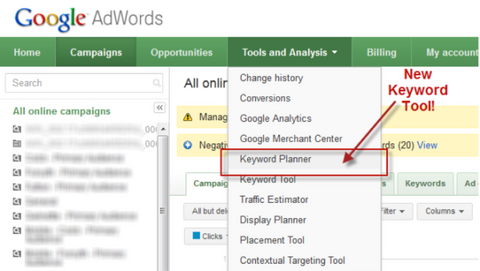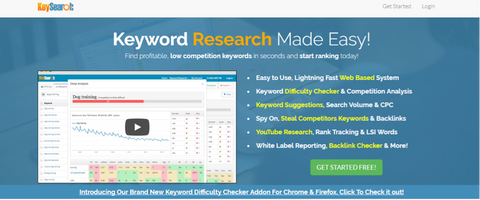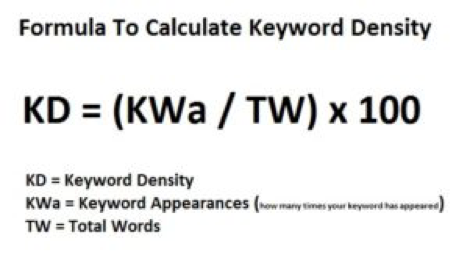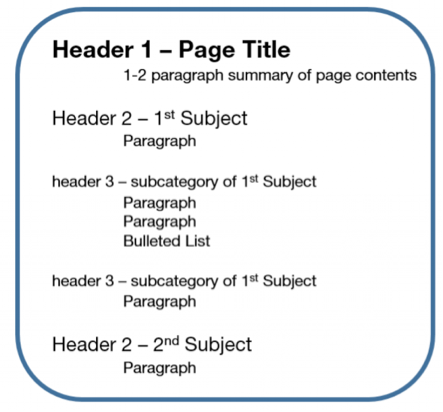If you're struggling to write SEO content, this is the guide for you! In this SEO Writing Tutorial, I'll reveal the best ways to optimise your content for the search engines, which will assist in ranking your content organically.
Writing SEO content is a skill that can be learned. Follow this guide, bookmark it and refer to every time you write content for the web.
SEO Writing Tutorial
In this tutorial, I'll answer the following questions:
- What exactly is SEO Writing and why is it important?
- How to optimise my content for the search engines and rank organically in Google?
- How important is keyword research when writing SEO content?
- What are LSI keywords and how do I use these?
- How important are meta tags and keywords when publishing on the web?
- Should I write for SEO or for readers?
- What are the best SEO writing tips you can give me to produce SEO content easily and quickly?
This guide will answer these questions and more.
Let's get started!
Introduction to SEO Writing
Content that reads well is important for a website or blog, but it also has to be optimized so that it ranks high on SERP; that’s where SEO writing comes into play. While your site’s content may be full of valuable information and have flawless grammar, unless if it’s not optimized to appeal to search engines, it probably isn’t going to garner a lot of attention.
Why?
Because in order for search engines to actually take notice of your content, it needs to meet their important guidelines. If your content doesn’t meet those guidelines, it’s likely going to get lost in the sea of billions of other web pages on the Internet. That means less attention for your site, which means less success for you.

The goal of any website owner should be to get onto the top pages and result of a search engine. The higher your site ranks, the more clicks, likes, shares, and overall engagement it is going to get, which translates into greater success for you. If your site is not on the first page, there's little chance people will see your great content, which is why it's important that your blog articles and web content are SEO-friendly.
SEO writing stands for search engine optimized writing. In a nutshell, it’s content that has been created with search engine guidelines in mind. By adding SEO-friendly content to your site, you’ll increase your chances of getting impressions and clicks from search engines such as Google, Yahoo and Bing.
To a newbie, SEO content writing may seem intimidating; however, it’s actually not as difficult as it may sound. In this SEO writing tutorial, we’ll share some valuable SEO writing tips that will be sure to get your web page on the first page of various search engines.
SEO Writing Tip 1: Choose the Right Keywords
Of all the information you will attain in this SEO writing tutorial, this is the most important. Keywords are a vital part of SEO writing. Basically, keywords are the main words and/or phrases that people use when searching for the information that they are trying to acquire. In other words, keywords make it possible for browsers to locate your site via a search engine.
When incorporating keywords in your SEO writing, you have to select words that people use when they are searching the Web. In other words, you have to find out how browsers are looking for the information, products or services that they are seeking in order to allow them to locate your site. If you aren’t using the right main keywords, your would-be visitors will end up landing on another page. By implementing main keywords, you can help your site rank higher than your competitors.
Pinpointing the Best Main Keywords
Finding effective main keywords used to be a daunting task, but it’s become a whole lot easier. There are tons of keyword research tools available, and these tools really simplify the process of targeting keywords. Google Keyword Planner is one of the most effective keyword research tools, and since Google is the leading search engine, it’s a tool that you should make use of.

There are plenty of other keyword research resources available, too, such as Keysearch.co and Ahrefs.
SEO Writing Tip 2: LSI Keywords
In SEO content writing, latent semantic indexing (LSI) keywords are just as important as your primary keywords. These are the words that are semantically related to your main keyword. In other words, LSI keywords are other words or phrases that are related to your main keywords. Why are LSI keywords valuable? Because they let search engines know if your content contains other words that other users may be searching, which therefore allows users that search those words to find your content.
How to Find LSI Keywords
Just like there are tools available to help you locate main keywords, there are also resources to help you locate LSI keywords for your SEO writing. Google Suggest is one of the most effective tools. Not only is it easy to use, but it lets you locate LSI keywords that Google thinks relate the most to your primary keywords. Keysearch.co is another effective tool that will help you locate LSI keywords that will add value to your SEO content writing.

SEO Writing Tip 3: Keyword Density
Though keywords are no longer the first thing search engines look at to determine what your content is about, they are still an important part of SEO content writing. Keywords are the words that are the most pertinent to the content on your webpage; words people use when searching the Internet to locate the information they seek.
While it’s important to use keywords, you want to be mindful of how much you use them. Over-using (keyword stuffing) and comprising the overall quality of your content can actually harm your ranking and could potentially end up getting you kicked off a search engine. With that said, you certainly want to incorporate keywords, but you also want to make sure that they aren’t just arbitrarily thrown into your content and diminish its value. That’s where keyword density comes in.
What is keyword density?

Keyword density refers to the amount of times a keyword or key phrase shows up on a web page in comparison with the total amount of words on the page. Ideally, the keyword density should be 1.5% to 2%. So, in a 600 word blog post, a keyword should appear between 6 and 8 times.
However, if you are simply using your words that many times to meet the percentage and the value of the content is being compromised to do so, than you can certainly include less. Google would rather you have less keywords than more, as your content will be deemed more readable and valuable.
SEO Writing Tip 4: Main Keyword Positioning
Your main keyword is the bread and butter of SEO content writing. It lets search engines know exactly what your site is about, and thus allows them to rank it accordingly. When it comes to SEO writing, you want to incorporate your main keyword throughout your content; however, making sure that it is placed in the first and last sentence is imperative.
Why Place Your Keyword in the First and Last Sentence?
The reason why including your main keyword in your first and last sentence is simple: it makes it easier for search engines to spot when they crawl your website. The keyword immediately stands out amidst all of the other sentences, thus making it easier for a search engine to determine the value of your site, and where it should be ranked.
SEO Writing Tip 5: Highlight Keywords
In order for your LSI keywords to really get noticed by search engines, you are going to want to make sure that they are highlighted. Doing so makes them more visible, thereby increasing your ranking.
How to Highlight Keywords
To make the most of your SEO content writing and get your LSI keywords noticed by search engines, it’s important to highlight those words. How can you do that? By simply writing them in bold or italics, or by underling them. This is one of the simplest SEO writing tips, and it provides valuable results.
SEO Writing Tip 6: Semantic Hierarchies

One of the most effective ways that you can make your content SEO-friendly is by paying attention to hierarchies and making use of (and optimizing) h1, h2 and h3 header tags. By focusing on hierarchies and header tags, you can exponentially increase your site’s ranking.
Why Hierarchies and Header Tags are Important
Header tags are a valuable to SEO writing because basically, they let search engines know what your website is all about. For example, Google will take notice of the copy in your header tags, making note that it is more important than the rest of the content. It starts with the h1 tag, which should contain the most pertinent information on your website, including targeted short-tail and long-tail keywords. Less important, but still valuable information should be placed in h2 and h3 tags. These tags will support the overall purpose of your page.
As search engines crawl through your site, they will take notice of these headers and spot the keywords you are using as significant.
SEO Writing Tip 7: Alt Tags
Images and videos are an important part of SEO writing. They break things up so that it doesn’t appear as one big block of text. They make content more engaging while adhering to web accessibility guidelines.

Just like your content needs to be optimized in order to be noticed by the search engines, so does your non-text content. If your images and videos aren’t optimized, they are going to get lost in the shuffle of the countless other graphics that are on the Internet. Additionally, when videos and images are optimized, they let search engines know that they provide value to your content.
How to Optimize Videos and Images
Alt tags are the most effective way to optimize your graphics. These tags make your videos and images more SEO-friendly, and more accessible on the web. Alt tags are the alternate text that will be displayed when an image or video is not available. Search engines use this text to determine what the graphic is. Alt tags are really easy to create; for example, the alt tag for a pumpkin would be ‘pumpkin.’ Pretty straightforward. Though this SEO content writing tip may seem simple, don’t dismiss how powerful they are for SEO writing.
- Tip: Need images for your blog? Check out our guide to finding 1000s of royalty free stock images here.
SEO Writing Tip 8: Meta Tags
Meta tags are one of the most basic aspects of SEO writing. They are the words that are hidden within your code, or your html’s head area. They describe the content that is on a page, but they aren’t visible on a page itself. In other words, these tags help search engines determine what a web page is about.
Types of Meta Tags
There are three main types of Meta tags that can be used. These include:
- Title Tag. This is the title text that is displayed within a search engine’s listing. It’s not exactly a Meta tag, but it acts very much like one.
- Description Tag. This is where you want to place the summary of your site, or what your site is about. It lets search engines know what your site has to offer browsers.
- Keyword Tags. You would place all of the keywords that are used within your site in the Meta keyword tag. You want to place the words that will get you a high ranking.
SEO Writing Tip 9: SEO Plugins
Plugins can also be a helpful tool for optimizing your content. An SEO plugin is a tool that makes it easier to optimize specific aspects of your website’s structure and code, making your site easier for search engines to crawl.
The elements that a plugin can optimize include:
- Meta data
- XML sitemap
- Canonical elements
- Robots.txt
- .htacess
These are all important elements that search engines analyze when determining where they should rank a website. Therefore, it’s important to ensure that they are properly optimized, and an SEO plugin will do just that.
Available SEO Plugins
There are several SEO plugins available. The platform your website operates on, as well as the services that you want the plugin to provide will determine which one will best suit your needs. Some of the most reputable SEO plugins include:
- Yoast
- SEMrush
- SEOPressor
- Google Keyword Planner
- Keywordtool.io
- Open Site Explorer
- Link Patrol

SEO Writing Tutorial Conclusion
In this SEO writing tutorial, we’ve shared some of the most valuable SEO writing tips. SEO content writing isn’t as complex as it may seem. By incorporating these pretty basic, yet highly effective tips, you will easily start optimizing your content.
Writing effective SEO content can be challenging at first, but it becomes second nature quickly. Don't forget that for competitive keywords, sometimes additional work will be required to rank in Google, such as high authority backlinks, which can significantly improve your Google rankings in a short period of time.
- Rather have us write your SEO content? Order our SEO Content Writing Services here.
Follow this SEO Writing Tutorial as outlined above - these tips will ensure you are well placed to publish content that ranks highly in Google.




